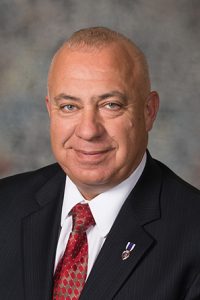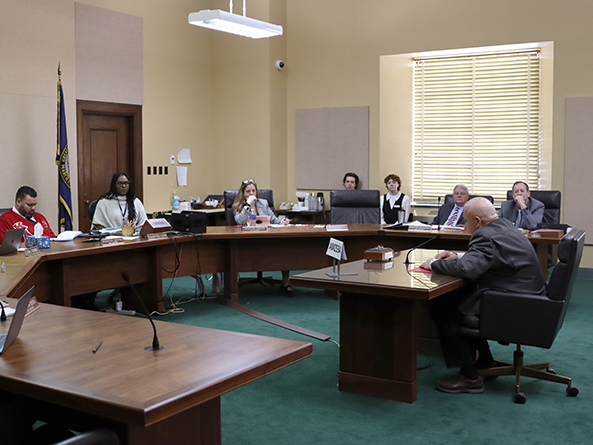Veteran justice program considered
Nebraska would develop a justice program aimed specifically at the needs of the state’s veterans under an amendment considered Feb. 23 by the Judiciary Committee.

As introduced last session by Gordon Sen. Tom Brewer, LB253 would create a second law enforcement academy in western Nebraska. The committee considered an amendment offered by Brewer that would gut the bill and instead require that each judicial district or county court in Nebraska establish a veteran justice program.
Under the amendment, a veteran would be eligible to participate in such a program if they are serving in the U.S. Armed Forces or previously served and were discharged other than dishonorably. A program could be operated in conjunction with a problem-solving court or on its own.
A veteran would be eligible to participate in a veteran justice program if the offense meets the parameters of the program and there is reason to believe that a condition resulting from military service contributed to the offense.
Brewer said many veterans are left with invisible scars related to their service that “derail their lives,” and many become homeless, addicted or suicidal as a result. He acknowledged that the proposal presented to the committee was “rushed” and that changes would need to be made, but asked senators to focus on the overall concept.
“This is good for our veterans; this is good for our communities; this is good for Nebraska,” he said.
Among other provisions, a veteran service program would include evidence-based treatment tailored to address the specific challenges facing veterans, such as PTSD, traumatic brain injury, military sexual trauma or other condition. It would include a case plan that is based on clear and individualized supervision and treatment goals, including guidelines that detail the program rules, consequences for violating the rules and incentives for compliance.
Former U.S. Secretary of Defense and Nebraska U.S. State Senator Chuck Hagel, chairman of the national Veterans Justice Commission, testified in favor of the proposal. He said the commission is working to address the long-standing problem of justice-involved veterans by giving the courts more options to address their specific needs.
“We all love veterans. We all acknowledge the service of veterans and we say nice things about veterans,” Hagel said. “But when some veterans get in trouble and they commit a crime, courts in this country, judges in this country, prosecutors in this country have very few options.”
Also testifying in support was Brock Hunter, a veteran and attorney working to advance veterans’ programs across the country. He said a similar law passed in Minnesota has been successful and works alongside that state’s existing veteran treatment court.
Not all veterans who are charged with a crime need the extensive resources of a veteran treatment court, he said, and — similar to the situation in Nebraska — those courts are not available in many rural parts of Minnesota, making a broader veteran program an important alternative option.
“It’s important for us to recognize that … for as long as veterans have returned from war, some of them have brought their war home with them,” Brock said.
Dan Zieg testified against the proposal on behalf of the Nebraska County Attorneys Association. He said the measure does not follow “evidence-based, best practice standards,” and that lawmakers should invest more resources into existing veteran treatment courts instead.
The committee took no immediate action on the proposal.


